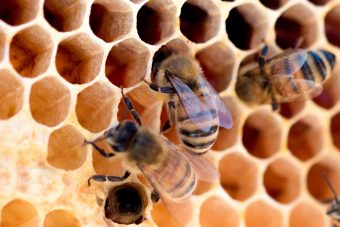
By now, everybody knows how important bees are for the survival of humanity and biodiversity, but in practice, it seems that that is not the case. Although, initially, I thought of skipping the part about their importance, I think it would be beneficial to write about it again.
It has been estimated that bees participate in total pollination with about 80 per cent. Although hand pollination techniques have been developed for some plants, with wind also playing a role in pollination of some species such as cereals, these tiny animals do it much more efficiently. They are of particular importance when it comes to fruit pollination. For example, bees participate in the total pollination of the cherry tree by about 90 per cent. More precise data show that they pollinate crops that provide about 90 per cent of humanity’s food.
Although there is a variety of opinions about the benefits of alternative medicine, it seems that the majority of people who are not proponents of it still believe in bee products. Honey, for instance, has fantastic benefits for immunity and great nutritional values and it can even be used to treat some serious medical problems. There is a special branch of medicine, apitherapy, which uses honey and other bee products in the prevention and treatment of various diseases. These products include propolis, pollen, royal jelly, bee’s wax and bee’s venom. Although the latter is labelled poison, this product has numerous therapeutic effects. Perhaps the biggest application is in the treatment of rheumatoid arthritis and diseases such as asthma, Parkinson’s, Alzheimer’s and other neurological diseases. Bee products also have a positive effect on mitigating health problems related to chemotherapy, as well as on the treatment of breast cancer.
I came across information that the creator of the term bee venom therapy was Bodog Felix Beck, an American doctor specializing in the treatment of arthritis and rheumatoid conditions using bee venom. He wrote the book titled “Bee Venom Therapy: Bee Venom, Its Nature and Its Effect on Arthritic and Rheumatoid Conditions” in 1935. Moreover, some data show that even the ancient Egyptians used bees for food as well as for medicinal purposes over 4,000 years ago.
There is a lot of information about the benefits that these insects provide us and this knowledge makes it possible to raise bees even on our home turf. The so-called Beeamond system collects bee products indoors, such as honey, pollen and propolis, but also provides other services such as air inhalation or bee venom therapy. Bee lovers can observe the entire process of how these wonderful creatures work because the hives are made of transparent material – glass. The whole system is made in such a way that it is safe for people, i.e. bees cannot enter the room, but also bees can freely leave their hive which is made of organic glass.
There are three types of such hives available, depending on the person’s needs and experience. There is a decorative and production model, which is affordable to anyone, but also a professional model which you need previous experience to use. The latter model allows you to extract products from it but also provides the aforementioned api-inhalation service, i.e. inhaling air from the hive, which is very healthy and strengthens immunity.
I have not found information on what experts think about this cultivation method, whether it is good for bees or if it puts them in jeopardy. However, what I wanted to point out is the growing awareness of people about the importance of bees for human health. As I wrote at the beginning, I believe that the awareness of the problem of their extinction is also growing, but practice still shows that there are not enough actions to solve the problem. Some estimates say that if bees disappeared from our planet, humanity could survive for only four years. I don’t know how accurate these estimates and I really hope we never find out, both for the sake of our species and other living beings. Alternative pollination solutions are also being created, such as robot bees, but it is certainly the last option we would want to experience. This is why we should opt for planting more flowers, the abolition of pesticides and supporting the life of bees.
Katarina Vuinac




